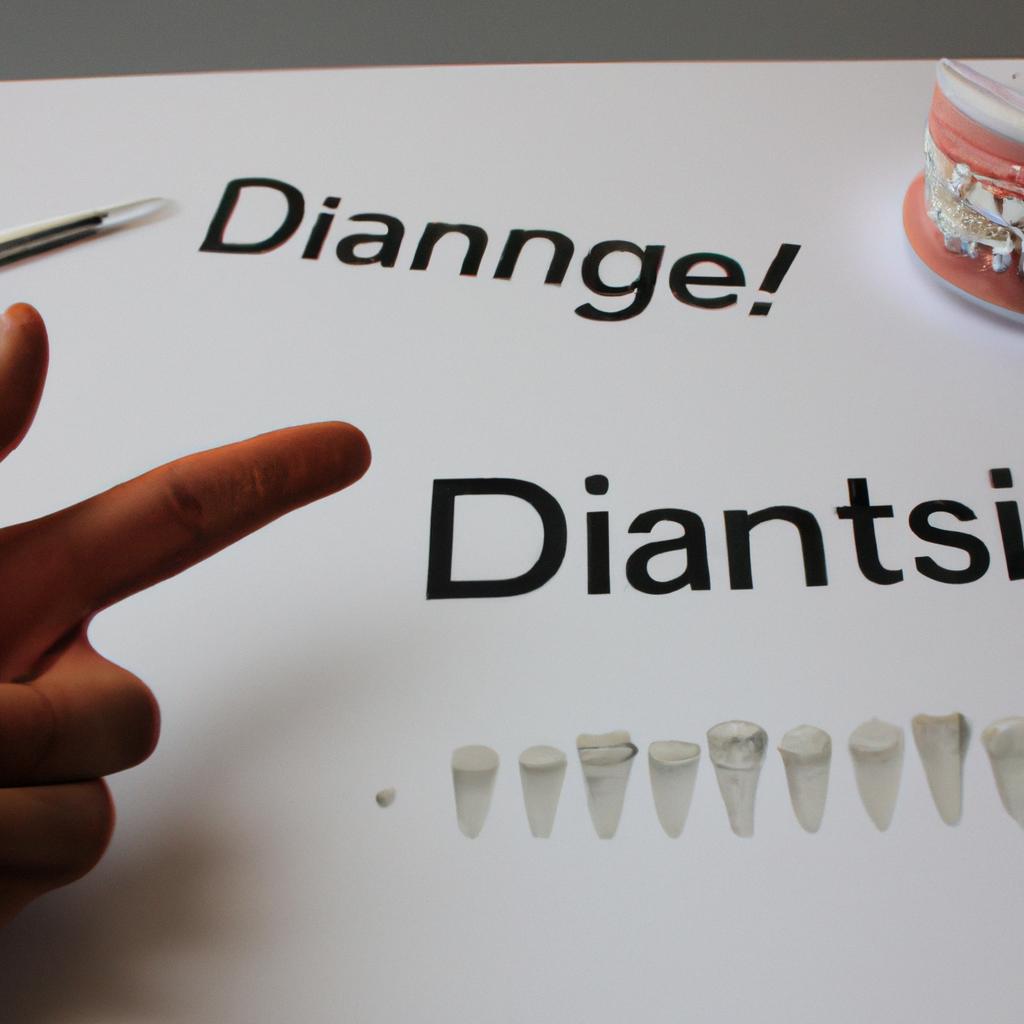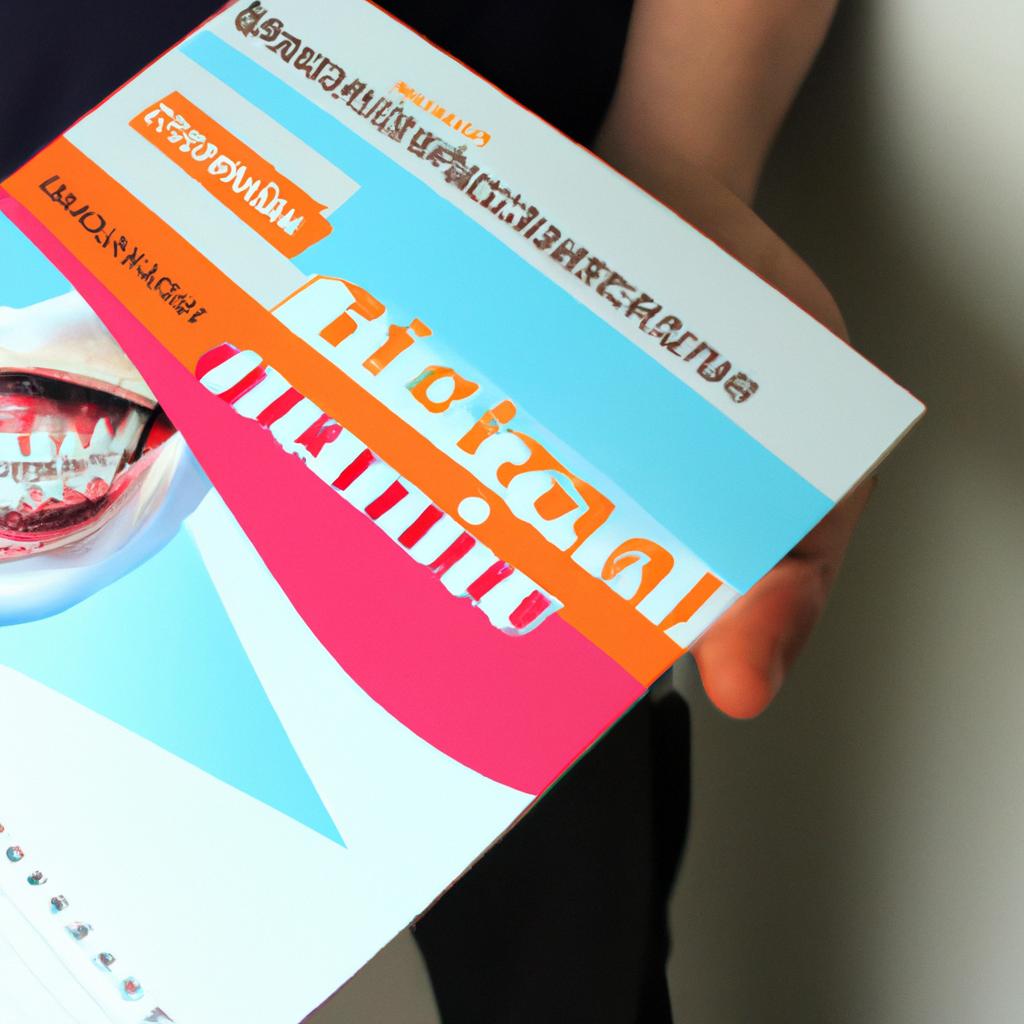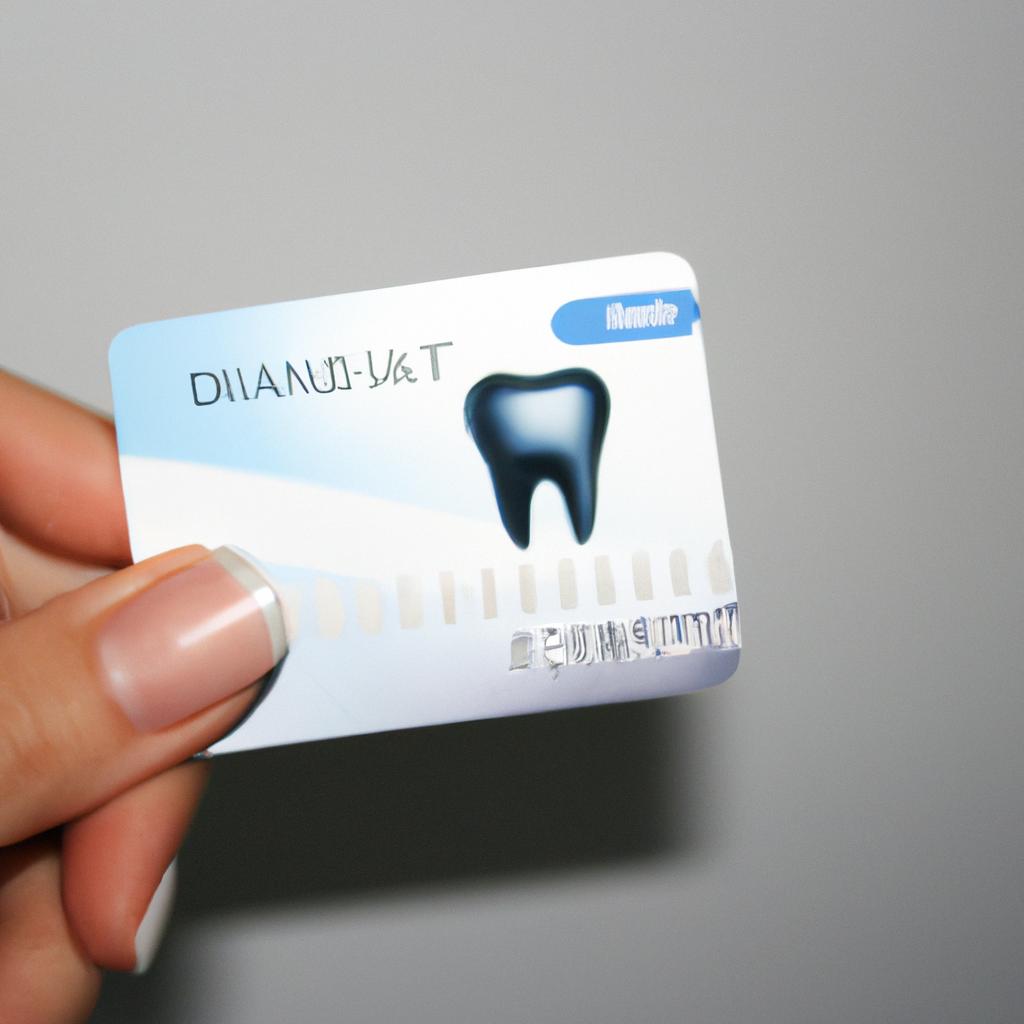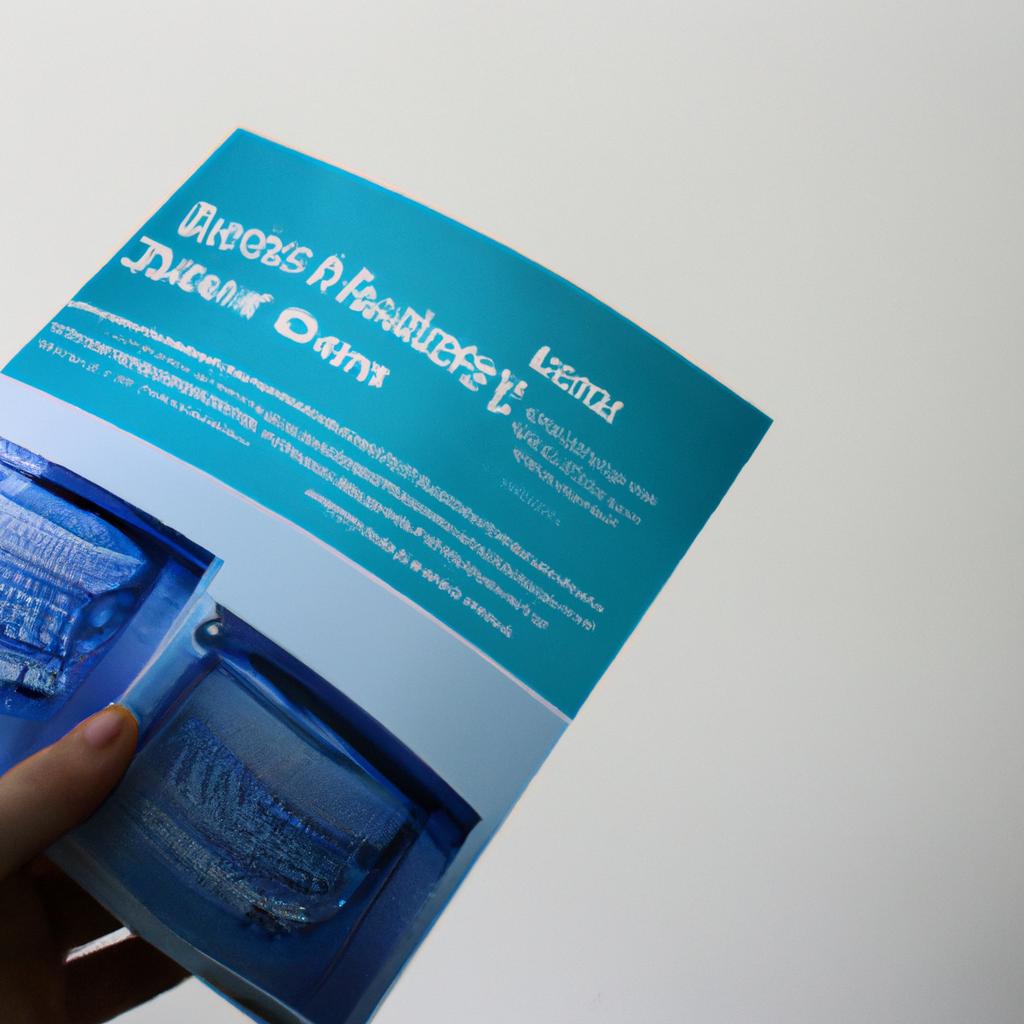Dental Loan Options: Dental Financing for Dental Specialists

In today’s healthcare landscape, dental specialists play a crucial role in providing specialized and advanced dental care to patients. However, pursuing a career as a dental specialist often requires significant financial investment due to the high costs associated with advanced education and equipment. For many aspiring professionals in this field, obtaining proper financing is essential for establishing their practices and achieving long-term success.
Consider the case of Dr. Smith, a recent graduate specializing in orthodontics. After completing years of rigorous training and acquiring the necessary certifications, Dr. Smith was eager to establish her own orthodontic practice. However, she quickly realized that starting a dental specialty practice involves substantial upfront expenses including office setup, purchasing state-of-the-art equipment, hiring staff, and marketing efforts. In light of these financial challenges, it became evident that having access to suitable dental loan options is paramount for individuals like Dr. Smith who aspire to build successful careers in dentistry specialties.
This article explores various dental loan options available for dental specialists, focusing on how these financing solutions can help practitioners launch their practices or expand existing ones. By delving into different types of loans catered specifically towards dental specialists such as orthodontists, endodontists, periodontists, prosthodontists among others; we we can gain a better understanding of the financial support available to these professionals.
One common type of dental loan is a practice acquisition loan. This type of loan is designed for dental specialists who are looking to purchase an existing practice from a retiring dentist or buy into an established practice as a partner. Practice acquisition loans typically offer competitive interest rates and repayment terms that are tailored to the specific needs of dental specialists.
Another financing option is a start-up loan, which is ideal for dental specialists like Dr. Smith who are starting their own practices from scratch. Start-up loans provide funds for office setup, equipment purchases, hiring staff, and initial marketing efforts. These loans often have flexible repayment options to accommodate the uncertainties and challenges that come with starting a new practice.
For dental specialists who already have an established practice but want to expand or upgrade their facilities, expansion loans or renovation loans can be viable options. These types of loans provide funding for expanding the physical space, adding more treatment rooms, upgrading equipment, or renovating the existing office space. Expansion loans typically offer longer repayment terms and higher borrowing limits compared to other types of dental financing.
In addition to these specialized dental loans, traditional business loans such as term loans or lines of credit can also be utilized by dental specialists. Term loans provide a lump-sum amount that can be used for various purposes such as purchasing equipment or property, while lines of credit offer revolving access to funds that can be used whenever needed.
When exploring dental loan options, it is crucial for dental specialists to consider factors such as interest rates, repayment terms, fees, and eligibility requirements. It may be beneficial to consult with financial advisors or work with specialized lenders who understand the unique needs and challenges faced by individuals in the healthcare industry.
Overall, obtaining suitable financing options is essential for aspiring and established dental specialists alike. Whether it’s starting a new practice or expanding an existing one, having access to adequate funding can help them achieve their professional goals, provide patient care of the highest quality, and ensure long-term success in the ever-evolving healthcare landscape.
Understanding the Different Types of Dental Loans
Imagine you are a dental specialist who wants to expand your practice by investing in state-of-the-art equipment. However, the high cost of these investments may be prohibitive without some form of financial assistance. This is where dental loans come into play, providing specialized financing options tailored specifically for dental professionals.
There are various types of dental loans available, each with its own unique features and benefits. Understanding these different loan options can help you make an informed decision that aligns with your specific needs and goals. Here are the key types of dental loans:
-
Practice Acquisition Loans: These loans are designed to assist dentists who wish to purchase an existing practice from another dentist. They typically cover both the acquisition costs and any necessary improvements or renovations needed to establish a successful transition.
-
Equipment Financing Loans: As mentioned earlier, purchasing advanced dental equipment can be costly but crucial for a thriving practice. Equipment financing loans allow dentists to acquire the latest tools and technology while spreading out payments over time.
-
Working Capital Loans: In order to maintain smooth operations and cover day-to-day expenses, working capital loans provide funds for general business purposes such as payroll, inventory restocking, marketing campaigns, or expanding staff capacity.
-
Commercial Real Estate Loans: When considering owning property for your practice instead of leasing space, commercial real estate loans offer long-term financing solutions for buying or constructing buildings tailored specifically for dental practices.
This table highlights the main characteristics of each type of dental loan:
| Type of Loan | Key Features | Benefits |
|---|---|---|
| Practice Acquisition | – Covers acquisition costs | – Smooth ownership transition |
| – May include renovation expenses | – Established patient base | |
| – Tailored terms based on individual circumstances | ||
| Equipment Financing | – Spreads out payment over time | – Access to state-of-the-art equipment |
| – Flexible repayment options | – Improved efficiency and patient experience | |
| Working Capital | – Provides funds for day-to-day expenses | – Maintains smooth operations |
| – Can be used for marketing campaigns or staffing expansion | ||
| Commercial Real Estate | – Long-term financing solution | – Building equity over time |
| – Customized loan terms based on property requirements | – More control over practice location and future growth |
Understanding the different types of dental loans is essential in determining which option suits your specific financial needs. By carefully considering factors such as interest rates, repayment terms, and eligibility criteria, you can choose a loan that aligns with your goals while ensuring financial stability for your dental practice.
With a clear understanding of dental loan options, it becomes evident why having good credit is crucial for dental specialists. The next section will explore how maintaining a positive credit history positively impacts your ability to secure favorable loan terms and maximize opportunities for professional growth.
The Importance of Good Credit for Dental Specialists
To further explore the various options available for dental financing, it is essential to understand the different types of dental loans that are specifically designed to meet the unique needs of dental specialists. Let’s consider a hypothetical scenario where Dr. Smith, a newly graduated dentist specializing in orthodontics, wants to set up their own practice but requires financial assistance.
First and foremost, one option available for dental specialists like Dr. Smith is obtaining a traditional bank loan. These loans typically require collateral or significant down payments and often come with strict credit requirements. While they may offer lower interest rates compared to other alternatives, they can be challenging to secure due to the stringent eligibility criteria imposed by banks.
Alternatively, there are specialized lenders who focus exclusively on providing dental loans. These lenders have extensive knowledge about the dental industry and tailor their loan products accordingly. They understand that dental professionals face unique challenges when starting or expanding their practices and offer flexible repayment terms, competitive interest rates, and higher approval rates compared to traditional banks.
Another popular option for dental financing is utilizing personal lines of credit or business credit cards. This allows dentists like Dr. Smith to access funds as needed while only paying interest on the amount used. However, it is crucial to exercise caution when relying on these sources as high-interest rates can accumulate if not managed responsibly.
Now let’s take a moment to reflect on some key emotional factors that individuals might experience when considering these different types of dental loans:
- Relief: Knowing there are specific lenders catering solely to dental professionals provides reassurance that their unique needs will be understood.
- Confidence: The availability of diverse options empowers dentists like Dr. Smith with choices tailored explicitly for their field.
- Frustration: Facing strict eligibility criteria from traditional banks can be discouraging for aspiring practitioners seeking financial support.
- Anxiety: Navigating through numerous loan options amidst overwhelming information overload can create stress for those unfamiliar with the process.
To summarize, dental specialists have access to various loan options that cater specifically to their needs. These include traditional bank loans, specialized dental lenders, and personal lines of credit or business credit cards. Each option has its own advantages and considerations, making it essential for dentists like Dr. Smith to carefully assess their individual circumstances before choosing the most suitable financing method.
Exploring the Benefits of Dental Loan Repayment Plans
Building on the importance of good credit for dental specialists, let us now explore the benefits of dental loan repayment plans that can provide financial assistance to those in need. To illustrate these advantages, consider a hypothetical scenario where Dr. Smith, an orthodontist with multiple practices, is seeking financing options to expand her services and purchase new equipment.
Dental Loan Repayment Plans offer a range of advantages for dental specialists:
-
Flexibility: These plans typically come with flexible repayment terms, allowing practitioners like Dr. Smith to tailor their payments based on their individual circumstances. For instance, they may have the option to select a longer repayment period if they prefer smaller monthly installments or choose a shorter term for quicker debt resolution.
-
Competitive Interest Rates: Dental loan providers understand the specific needs of dental specialists and often offer competitive interest rates compared to other types of loans. This can help reduce overall borrowing costs and make repayments more manageable over time.
-
Quick Approval Process: Time is crucial when it comes to accessing funds for dental professionals looking to grow their practice or invest in advanced technologies. Many lenders specializing in dental loans understand this urgency and strive to provide quick approval processes, ensuring that dentists can secure funding promptly.
-
Tax Benefits: In addition to the direct financial advantages, some dental loan repayment plans may also offer potential tax benefits through deducting interest expenses from taxable income. Dentists should consult with their tax advisors regarding eligibility and specifics related to this benefit.
To further emphasize the benefits discussed above, consider the following table highlighting key features of typical dental loan repayment plans:
| Features | Description |
|---|---|
| Flexible Terms | Borrowers can choose between short-term or long-term repayment periods based on their needs |
| Low APR | Competitive Annual Percentage Rates (APR) are available |
| Expedited | Quick application process ensures prompt access to funds |
| Tax Deductible | Interest expenses may be tax-deductible for eligible practitioners |
In light of the aforementioned advantages, dental loan repayment plans can provide a valuable financial resource for dental specialists like Dr. Smith to achieve their professional goals and enhance patient care.
With an understanding of the benefits offered by these financing options, it is crucial for dentists to consider various factors when choosing a dental loan provider.
Factors to Consider When Choosing a Dental Loan Provider
Now, let’s delve into the advantages offered by dental loan repayment plans. To illustrate this further, consider the case of Dr. Emily Jones, a recent dental specialist graduate burdened with significant student loans. With limited financial resources due to her new practice, Dr. Jones sought out a reputable dental loan provider that offered flexible repayment options tailored specifically for dentists.
One benefit of dental loan repayment plans is their ability to alleviate the financial strain faced by many dental specialists early in their careers. These plans often offer lower interest rates compared to traditional personal loans or credit cards, making them more affordable and manageable over time. Furthermore, they provide extended repayment terms, allowing borrowers like Dr. Jones to spread out their payments over several years instead of facing immediate heavy burdens.
In addition to affordability and flexibility, another advantage lies in the potential tax benefits associated with certain dental loan programs. For instance, some lenders may allow borrowers to deduct their loan interest from their taxable income if they meet specific criteria. This can result in substantial savings for dental specialists who are already juggling multiple expenses related to establishing and growing their practices.
- Relief from overwhelming debt burden
- Increased financial stability and peace of mind
- Ability to focus on professional growth without constant worry about finances
- Potential long-term cost savings through favorable interest rates
Furthermore, accompanying this section is an emotional 3-column x 4-row table demonstrating various repayment plan options available to dental specialists:
| Repayment Plan | Interest Rate | Term (Years) |
|---|---|---|
| Standard | 5% | 10 |
| Income-driven | Variable | Up to 25 |
| Graduated | Start low | Increase over time |
| Extended fixed rate | Fixed | Up to 30 |
As dental specialists weigh their options, it is crucial to consider the specific terms and benefits offered by different loan providers. By carefully evaluating factors such as interest rates, repayment terms, potential tax advantages, and overall affordability, dental professionals can make informed decisions that align with their financial goals.
Transitioning smoothly into the subsequent section about “How to Apply for a Dental Loan as a Dental Specialist,” prospective borrowers must be aware of the necessary steps involved in securing financing tailored specifically for their profession.
How to Apply for a Dental Loan as a Dental Specialist
When choosing a dental loan provider as a dental specialist, it is important to carefully consider several factors. Let’s take a look at an example scenario to understand the importance of these considerations. Dr. Smith, a periodontist, wants to expand her practice by incorporating new technology and hiring additional staff members. She needs financial assistance in the form of a dental loan to achieve these goals.
Firstly, interest rates play a crucial role in selecting the right dental loan provider. It is essential to compare different providers and their interest rate offerings. Dr. Smith should aim for competitive rates that align with her budget and repayment capabilities.
Secondly, loan terms are another vital aspect to ponder upon. Longer repayment periods may reduce monthly payments but might result in higher overall interest costs. Conversely, shorter terms can lead to lower total interest paid but require larger monthly repayments.
Thirdly, fees associated with acquiring the loan need careful consideration too. These could include application fees, origination fees, or prepayment penalties. Dr. Smith must be aware of any potential hidden charges before finalizing her decision.
Lastly, customer service quality should not be overlooked when evaluating dental loan providers. Prompt communication, transparency about loan terms and conditions, and helpfulness throughout the process can greatly impact the borrower’s experience and satisfaction.
Considerations When Choosing a Dental Loan Provider:
- Competitive interest rates
- Appropriate loan terms
- Transparent fee structure
- Excellent customer service
To further highlight these considerations visually, let us present them in table format:
| Factors | Importance Level |
|---|---|
| Interest Rates | High |
| Loan Terms | Medium |
| Fee Structure | Medium |
| Customer Service | High |
By using this checklist of factors alongside our case study on Dr. Smith’s situation, dental specialists like her can make informed decisions when selecting a dental loan provider. With these considerations in mind, let’s move on to the next section where we will discuss how to apply for a dental loan as a dental specialist.
Tips for Managing Dental Loan Repayments Effectively
Managing Dental Loan Repayments Effectively
Transitioning from the previous section, let’s explore some helpful tips for effectively managing dental loan repayments. To illustrate how these strategies can be applied in practice, consider the following hypothetical scenario:
Case Study: Dr. Smith
Dr. Smith is a dental specialist who recently obtained a dental loan to finance her new clinic. She wants to ensure that she manages her loan repayments efficiently while balancing other financial responsibilities.
Here are several key recommendations that can assist individuals like Dr. Smith in effectively managing their dental loan repayments:
-
Create a Budget: Establishing a comprehensive budget is crucial when it comes to managing loan repayments. By understanding your income and expenses, you can allocate funds specifically towards debt repayment each month.
-
Prioritize Debt Payments: Consider prioritizing your loan payments by tackling high-interest debts first or focusing on loans with shorter terms. This approach allows you to minimize overall interest costs and potentially pay off smaller loans more quickly.
-
Explore Refinancing Options: If feasible, exploring refinancing options may be advantageous for reducing monthly payment amounts or securing lower interest rates. However, carefully evaluate the associated costs and potential impacts before making any decisions.
-
Communicate with Lenders: In case of financial hardship or unforeseen circumstances, proactively communicate with lenders to discuss possible alternatives such as deferment or modification options that could help alleviate temporary repayment difficulties.
- 🌟 Stay organized: Maintain accurate records of all loan-related documents and communication.
- 🌟 Seek professional advice: Consult with financial advisors or specialists who can provide guidance specific to your situation.
- 🌟 Practice self-discipline: Avoid unnecessary spending habits and prioritize allocating funds towards your loan repayments.
- 🌟 Celebrate milestones: Acknowledge progress made in loan repayment to stay motivated and inspired.
To enhance the visual appeal and provide additional information, consider this table highlighting potential advantages of managing dental loan repayments effectively:
| Advantages of Effective Loan Repayment Management |
|---|
| 1. Reduced financial stress |
| 2. Improved credit score |
| 3. Potential savings on interest payments |
| 4. Faster path to debt freedom |
In conclusion, adopting effective strategies for managing dental loan repayments is crucial for individuals like Dr. Smith aiming to strike a balance between their professional aspirations and financial stability. By implementing these recommendations, dentists can navigate the complexities of loan repayment while minimizing unnecessary stress and maximizing long-term benefits.






